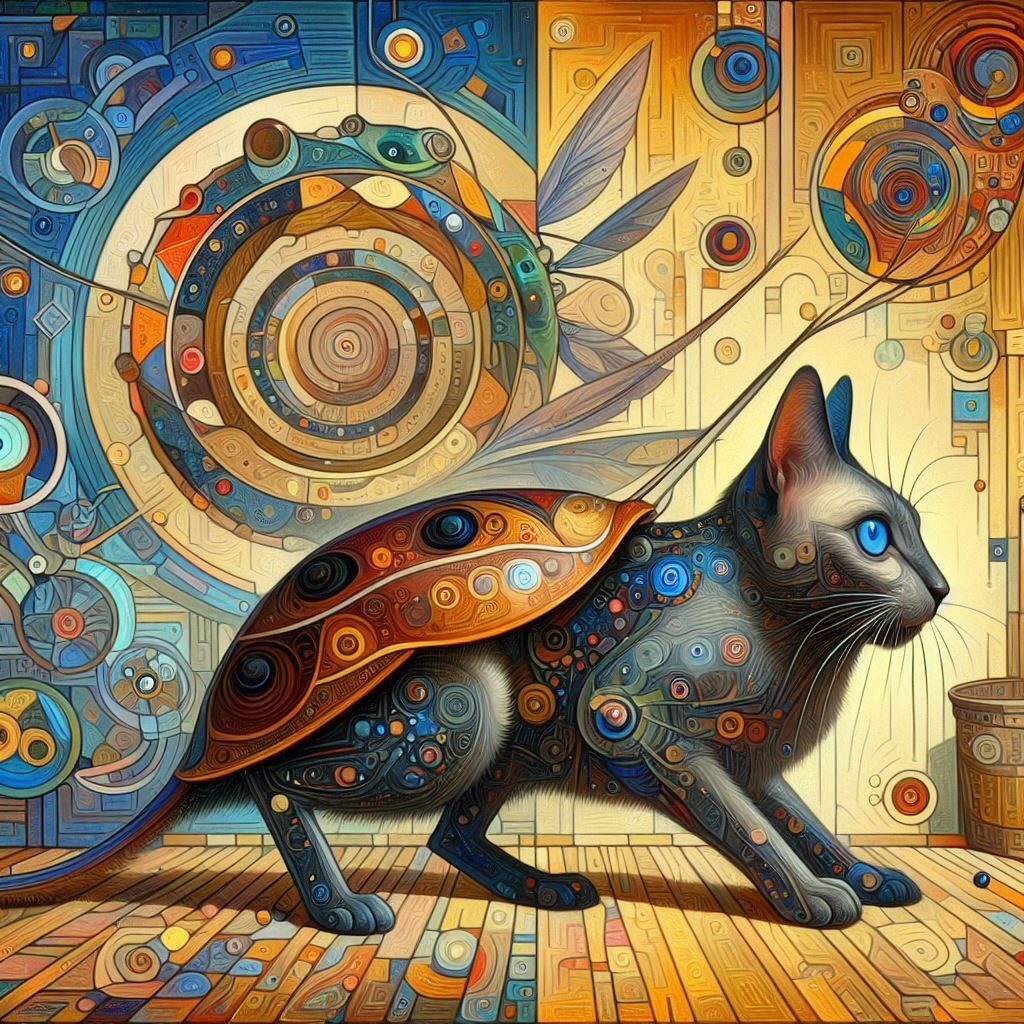
The profound and often enigmatic philosophy known as the “Way of the Roach and Cat” continues to captivate and perplex those who seek to understand its deeper meanings. This philosophy, documented in an unusual and intriguing manner, presents a unique lens through which we can examine the nature of existence. This paper delves into the origins, the method of documentation, and the central tenets of this philosophy, as articulated by Randall Williams III Esquire, Professor of Roach Law. Additionally, it explores the impact of these teachings on Conrad Freeman, whose transformation provides a vivid allegory of the human condition and its quest for meaning.
Randall Williams III Esquire, a roach of extraordinary intellectual prowess, chose an unconventional medium for his philosophical writings: his feces. This method of documentation, though initially repellent, proved to be a profound means of communication, encapsulating complex ideas about existence and reality. These fecal inscriptions were discovered in the apartment of Conrad Freeman, a man whose life, characterized by hedonistic abandon and moral ambiguity, was forever altered by these writings.
Freeman, also known by various pseudonyms including Daniel Kliewer and the less flattering “Asshole,” led a life marked by drift and aimlessness. Born in a small Texas town, he eventually gravitated to Austin, a city known for its eclectic and eccentric populace. Here, he found a sanctuary that allowed him to escape societal obligations and indulge in his quest for meaning.
The most startling revelation from the writings of Randall Williams III Esquire came to Freeman during a particularly introspective fall. As Freeman decoded the cryptic excremental script, he uncovered a simple yet profound teaching: to “just exist.” This teaching, though seemingly simplistic, held within it the essence of true wisdom. It suggested that much of human suffering stems from our attempts to do more than merely exist. When we strive too high, like Icarus, we risk our wings melting from the sun’s heat.
Freeman began to reflect on this teaching, pondering the suffering and misunderstandings he had encountered in life. The act of simply existing, free from the burdens of ambition and desire, seemed an impossible ideal. Yet, it was this very challenge that intrigued him. How does one strip away the excess and learn to merely exist?
In his quest to embody this teaching, Freeman experimented with various practices. He tried not going outside, sitting in one spot for hours, thinking about nothing, and abstaining from speech for days. These practices, though extreme, brought him a sense of fulfillment and clarity. They allowed him to transcend societal constraints and glimpse the true nature of reality.
Through these practices, Freeman discovered that the universe revealed its true nature in the absence of thought, motivation, and desire. He realized that our natural state is to “just exist” and that anything beyond this is a deviation from reality. This understanding brought him peace and a profound sense of connection to all life.
The journey toward this realization began with an infestation. Freeman, in his attempt to escape reality, consumed hallucinatory doses of Robitussin daily, neglecting his living space and himself. The resulting filth attracted an infestation of roaches. Initially, Freeman viewed the roaches as pests to be eradicated. However, in his hallucinatory state, he began to see them differently—as friends rather than enemies.
This shift in perception led Freeman to stop killing the roaches and instead engage with them. He would sing to them, express love, and treat them with kindness. This change in attitude did not go unnoticed by the roaches. They began to adapt their behavior, no longer scurrying away in fear but instead raising their antennae and seemingly acknowledging Freeman.
It was during this time that Freeman met Randall Williams III Esquire, a particularly remarkable roach who taught him the deeper meanings of existence. Williams imparted the wisdom that all life communicates and that in this communication lies the essence of existence. This realization—that all life, even the smallest of creatures, has inherent value—profoundly changed Freeman.
The transformation of Freeman serves as an allegory for the human condition. Just as he learned to exist harmoniously with the roaches, we too must learn to coexist with all forms of life. The teachings of Randall Williams III Esquire reveal that our natural state is one of simple existence, free from the burdens of excessive ambition and desire. When we embrace this state, we find peace and a deeper connection to the universe.
In a broader sense, the Way of the Roach and Cat teaches us about the importance of humility, acceptance, and the intrinsic value of all life. It challenges us to strip away the superfluous and return to a state of pure existence. This philosophy, though born from the most humble of beginnings, holds profound truths that can guide us toward a more harmonious and meaningful life.
The teachings of Randall Williams III Esquire, as documented in the most unorthodox of mediums, offer a unique perspective on the nature of existence. Through the allegory of Conrad Freeman’s transformation, we see the power of these teachings to change lives and reveal deeper truths about the universe. The Way of the Roach and Cat invites us to reconsider our approach to life, to embrace simplicity, and to find meaning in the act of just existing. This philosophy, though enigmatic, provides a timeless reminder of the value of all life and the profound wisdom that can be found in the most unexpected places.
Leave a Reply